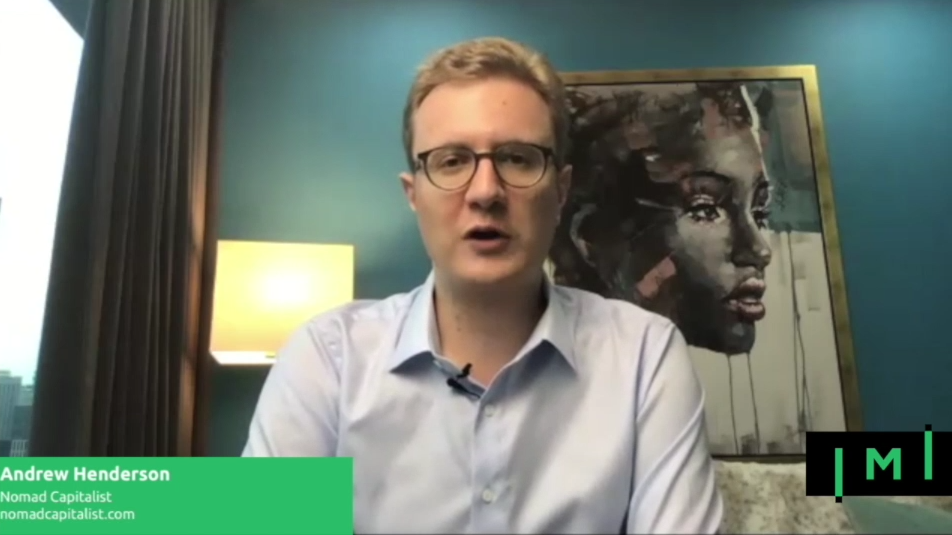Andrew Henderson on Investment Migration After COVID: “It’s Going to Be a Reset”
This video is the first in an IMI Club exclusive series of interviews with investment migration personalities, centered on questions surrounding the direction the market will take following COVID-19.
In the series, we ask questions such as:
- How will the pandemic and economic crisis affect demand?
- Which programs will be the winners in the aftermath?
- How will the programs themselves respond and will they lower prices?
- Can we expect new RCBI programs to open as governments turn every stone to finance their operations?
During his interview with IMI – available in the IMI Club Members’ Lounge -Andrew Henderson of Nomad Capitalist expressed optimism about demand for investment migration programs following COVID-19, skepticism around the notion that CIPs will lower prices in response to the crisis, and warned that US-style citizenship-based taxation may soon spread to Europe.
Watch the 30-minute in-depth interview here.
New programs and possibly lower prices
A concern among CIP watchers, especially in the Caribbean, has been that the crisis might set off another price war. With little price-margin left after the 2017 round of discounts, Henderson has a hard time imagining further significant reductions.
“I don’t think that they need to lower prices and I don’t think they will lower prices on donations, at least for single applicants. If you look at the price movement among CIPs in recent years, like in Moldova, Montenegro, or Turkey, they have not been releasing cheaper options and I don’t think there’s a point to doing that,” comments Henderson. But he also concedes that we may see some countries opening programs in response to the crisis, and holds up as the most likely candidates a particular Caribbean country.
While many commentators on IMI have postulated that new programs will open in response to a COVID-induced sovereign debt crisis, Henderson is less confident about such developments.
“Just because a country needs the money doesn’t mean they’ll open a program. Look at Georgia; they just raised the residency investment requirements and made it more expensive than Greece, and they didn’t even approve everybody.”
To hear which programs Henderson believes are the most likely to lower prices, and where he thinks we might see new CIPs showing up, watch the 30-minute in-depth interview here.
Citizenship-based taxation on the European agenda
He also indicated some concern regarding the possibility of the EU instating practices similar to the American IRS of making global income tax payments contingent on citizenship rather than the territorial tax system used in the overwhelming majority of countries today.
“When I read policy papers from the OECD and other organizations and I read about how they want a digital tax, they want taxes on services globally, more countries are looking at having withholding taxes for moving money overseas, I start to read the tea leaves […] I think it’s only a matter of time before they start to float this.”
Though he recognizes many fortunes will be decimated by the crisis, Henderson also believes there was a large subset of investors who saw the writing on the wall and have moved the bulk of their assets to cash in recent years.
“It’s going to be a bit of a reset. I think there are plenty of people out there who have stockpiled cash, and those people are saying ‘my dollars have appreciated so much against euros, the yen, and so many other currencies which are down. Why don’t I put this money into a citizenship, or why don’t I take advantage of a currency that just got beaten up and buy some real estate?”
Not all the mass-affluent have been wiped out
Reacting to Mohammed Asaria’s hypothesis, which essentially posits that investment migration will now return to the realm of UHNWI because the mass affluent have been “wiped out”, Henderson says the dividing lines between who is and isn’t a post-COVID investor migrant isn’t between HNWI and UHNWI, but between those who have run a sustainable business and those who are over-leveraged. “That’s the demarcation I would use versus ‘only the uber-wealthy now’” he says.
Questioned as to which programs he believes will be relatively more successful following the pandemic, those primarily offering mobility or those that grant access to greater territories and markets, Henderson thinks we shouldn’t write off the small country CIPs just yet.
“I still think there’s validity to these small countries, but I think the issues is how they market themselves. Westerners want places that get less involved in their lives. They’re tired of being dictated to and I think smaller countries equal more freedom, in many cases.”
Watch the 30-minute in-depth interview here.
Christian Henrik Nesheim is the founder and editor of Investment Migration Insider, the #1 magazine – online or offline – for residency and citizenship by investment. He is an internationally recognized expert, speaker, documentary producer, and writer on the subject of investment migration, whose work is cited in the Economist, Bloomberg, Fortune, Forbes, Newsweek, and Business Insider. Norwegian by birth, Christian has spent the last 16 years in the United States, China, Spain, and Portugal.



